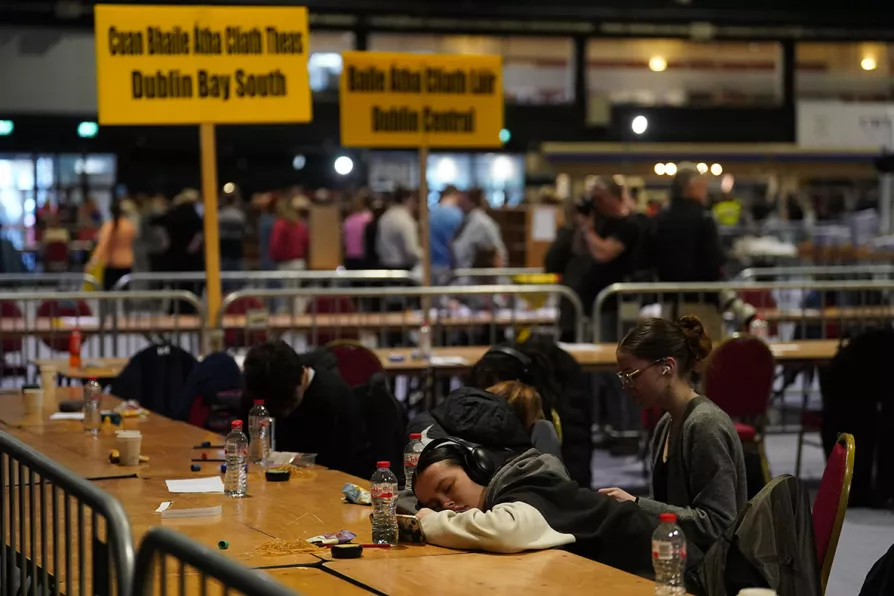
 The election count continues at RDS Simmonscourt, Dublin, after voters went to the polls to elect 174 TDs across 43 constituencies during the Irish General Election, December 1, 2024
The election count continues at RDS Simmonscourt, Dublin, after voters went to the polls to elect 174 TDs across 43 constituencies during the Irish General Election, December 1, 2024
IRELAND faces weeks of coalition talks before a new government can be formed, as the two major right-wing parties work to form a stable administration in the wake of Friday’s general election.
With all 174 legislative seats filled after three days of vote-counting, Fianna Fail had 48 seats and Fine Gael 38. The two parties, who have governed in coalition since 2020, fell just short of the 88 needed to achieve a majority without third-party support.
“The people have spoken. Let us now get on with the work,” said Fianna Fail leader Micheal Martin.

A new group within the NEU is preparing the labour movement for a conversation on Irish unity by arguing that true liberation must be rooted in working-class solidarity and anti-sectarianism, writes ROBERT POOLE

The independent TD’s campaign has put important issues like Irish reunification and military neutrality at the heart of the political conversation, argues SEAN MacBRADAIGH












